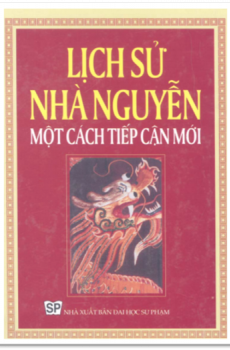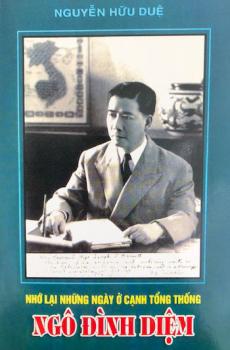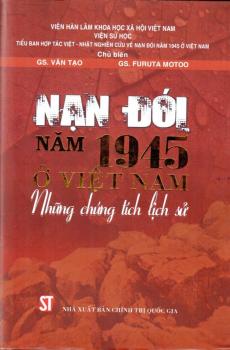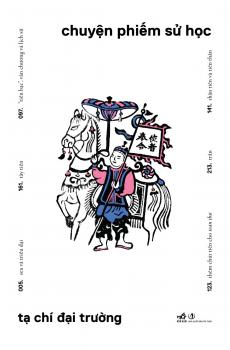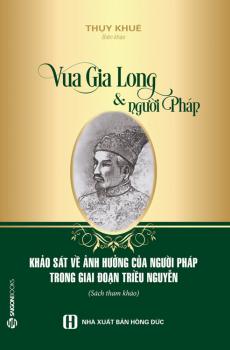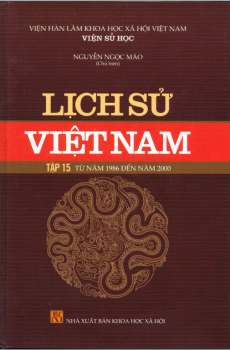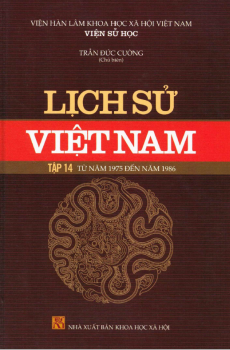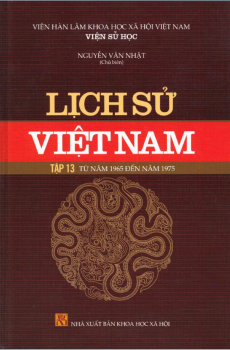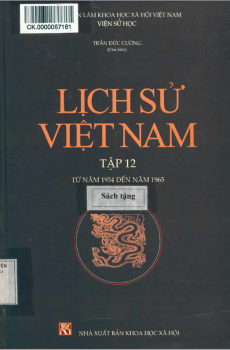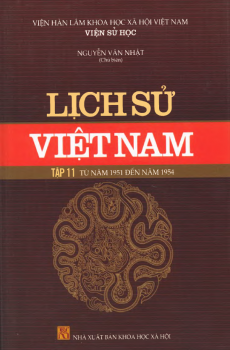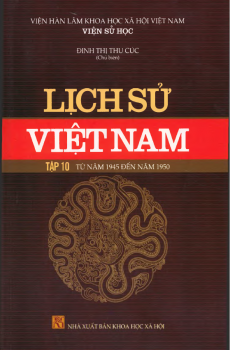Beacon Lights of History, Volume VI
Beacon Lights of History, Volume VI
Đăng nhập để đọc sách và tải về file pdf miễn phí
| Nhà xuất bản | unknown |
|---|---|
| Nhà xuất bản sách tiếp cận | Public domain |
| Năm xuất bản | 2003 |
| Coppy right | Chưa rõ |
***START OF THE PROJECT GUTENBERG EBOOK BEACON LIGHTS OF HISTORY, VOLUME VI***
E-text prepared by Juliet Sutherland, Charlie Kirschner,
and the Project Gutenberg Online Distributed Proofreading Team
Editorial note:
Project Gutenberg has an earlier version of this work, which is titled Beacon Lights of History, Volume III, part 2: Renaissance and Reformation. See E-Book#1499, http://www.gutenberg.net/etext98/32blh10.txt or http://www.gutenberg.net/etext98/32blh10.zip. The numbering of volumes in the earlier set reflected the order in which the lectures were given. In the current (later) version, volumes were numbered to put the subjects in historical sequence.
LORD'S LECTURES
BEACON LIGHTS OF HISTORY.
BY JOHN LORD, LL.D.
AUTHOR OF "THE OLD ROMAN WORLD," "MODERN EUROPE," ETC., ETC.
VOLUME VI.
RENAISSANCE AND REFORMATION.
CONTENTS.
DANTE.
RISE OF MODERN POETRY.
The antiquity of Poetry
The greatness of Poets
Their influence on Civilization
The true poet one of the rarest of men
The pre-eminence of Homer, Dante, Shakspeare, and Goethe
Characteristics of Dante
His precocity
His moral wisdom and great attainments
His terrible scorn and his isolation
State of society when Dante was born
His banishment
Guelphs and Ghibellines
Dante stimulated to his great task by an absorbing sentiment
Beatrice
Dante's passion for Beatrice analyzed
The worship of ideal qualities the foundation of lofty love.
The mystery of love
Its exalted realism
Dedication of Dante's life-labors to the departed Beatrice
The Divine Comedy; a study
The Inferno; its graphic pictures
Its connection with the ideas of the Middle Ages
The physical hell of Dante in its connection with the Mediaeval doctrine of Retribution
The Purgatorio; its moral wisdom
Origin of the doctrine of Purgatory
Its consolation amid the speculations of despair
The Paradiso
Its discussion of grand themes
The Divina Commedia makes an epoch in civilization
Dante's life an epic
His exalted character
His posthumous influence
GEOFFREY CHAUCER.
ENGLISH LIFE IN THE FOURTEENTH CENTURY.
The characteristics of the fourteenth century
Its great events and characters
State of society in England when Chaucer arose
His early life
His intimacy with John of Gaunt, the great Duke of Lancaster
His prosperity
His poetry
The Canterbury Tales
Their fidelity to Nature and to English life
Connection of his poetry with the formation of the English Language
The Pilgrims of the Canterbury Tales
Chaucer's views of women and of love
His description of popular sports and amusements
The preponderance of country life in the fourteenth century
Chaucer's description of popular superstitions
Of ecclesiastical abuses
His emancipation from the ideas of the Middle Ages
Peculiarities of his poetry
Chaucer's private life
The respect in which he was held
Influence of his poetry
CHRISTOPHER COLUMBUS.
MARITIME DISCOVERIES.
Marco Polo
His travels
The geographical problems of the fourteenth century
Sought to be solved by Christopher Columbus
The difficulties he had to encounter
Regarded as a visionary man
His persistence
Influence of women in great enterprises
Columbus introduced to Queen Isabella
Excuses for his opponents
The Queen favors his projects
The first voyage of Columbus
Its dangers
Discovery of the Bahama Islands
Discovery of Cuba and Hispaniola
Columbus returns to Spain
The excitement and enthusiasm produced by his discoveries
His second voyage
Extravagant expectations of Columbus
Disasters of the colonists
Decline of the popularity of Columbus
His third voyage
His arrest and disgrace
His fourth voyage
His death
Greatness of his services
Results of his discoveries
Colonization
The mines of Peru and Mexico
The effects on Europe of the rapid increase of the precious metals
True sources of national wealth
The destinies of America
Its true mission
SAVONAROLA.
UNSUCCESSFUL REFORMS.
The age of Savonarola
Revival of Classic Literature
Ecclesiastical corruptions
Religious apathy; awakened intelligence; infidel spirit
Youth of Savonarola
His piety
Begins to preach
His success at Florence
Peculiarities of his eloquence
Death of Lorenzo de' Medici
Savonarola as a political leader
Denunciation of tyranny
His influence in giving a constitution to the Florentines
Difficulties of Constitution-making
His method of teaching political science
Peculiarities of the new Rule
Its great wisdom
Savonarola as reformer
As moralist
Terrible denunciation of sin in high places
A prophet of woe
Contrast between Savonarola and Luther
The sermons of Savonarola
His marvellous eloquence
Its peculiarities
The enemies of Savonarola
Savonarola persecuted
His appeal to Europe
The people desert him
Months of torment
His martyrdom
His character
His posthumous influence
MICHAEL ANGELO.
THE REVIVAL OF ART.
Michael Angelo as representative of reviving Art
Ennobling effects of Art when inspired by lofty sentiments
Brilliancy of Art in the sixteenth century
Early life of Michael Angelo
His aptitude for Art
Patronized by Lorenzo de' Medici
Sculpture later in its development than Architecture
The chief works of Michael Angelo as sculptor
The peculiarity of his sculptures
Michael Angelo as painter
History of painting in the Middle Ages
Da Vinci
The frescos of the Sistine Chapel
The Last Judgment
The cartoon of the battle of Pisa
The variety as well as moral grandeur of Michael Angelo's paintings
Ennobling influence of his works
His works as architect
St. Peter's Church
Revival of Roman and Grecian Architecture
Contrasted with Gothic Architecture
Michael Angelo rescues the beauties of Paganism
Not responsible for absurdities of the Renaissance
Greatness of Michael Angelo as a man
His industry, temperance, dignity of character, love of Art for Art's sake
His indifference to rewards and praises
His transcendent fame
MARTIN LUTHER.
THE PROTESTANT REFORMATION.
Luther's predecessors
Corruptions of the Church
Luther the man for the work of reform
His peculiarities
His early piety
Enters a Monastery
His religious experience
Made Professor of Divinity at Wittenberg
The Pope in great need of money to complete St. Peter's
Indulgences; principles on which they were based
Luther, indignant, preaches Justification by Faith
His immense popularity
Grace the cardinal principle of the Reformation
The Reformation began as a religious movement
How the defence of Luther's doctrine led to the recognition of the supreme authority of the Scriptures
Public disputation at Leipsic between Luther and Eck
Connection between the advocacy of the Bible as a supreme authority and the right of private judgment
Religious liberty a sequence of private judgment
Connection between religious and civil liberty
Contrast between Leo I. and Luther
Luther as reformer
His boldness and popularity
He alarms Rome
His translation of the Bible, his hymns, and other works
Summoned by imperial authority to the Diet of Worms
His memorable defence
His immortal legacies
His death and character
THOMAS CRANMER.
THE ENGLISH REFORMATION.
Importance of the English Reformation
Cranmer its best exponent
What was effected during the reign of Henry VIII
Thomas Cromwell
Suppression of Monasteries
Their opposition to the revival of Learning
Their exceeding corruption
Their great wealth and its confiscation
Ecclesiastical courts
Sir Thomas More: his execution
Main feature of Henry VIII.'s anti-clerical measures
Fall of Cromwell
Rise of Cranmer
His characteristics
His wise moderation
His fortunate suggestions to Henry VIII
Made Archbishop of Canterbury
Difficulties of his position
Reforms made by the government, not by the people
Accession of Edward VI
Cranmer's Church reforms: open communion; abolition of the Mass; new English liturgy
Marriage among the clergy; the Forty-two Articles
Accession of Mary
Persecution of the Reformers
Reactionary measures
Arrest, weakness, and recantation of Cranmer
His noble death; his character
Death of Mary
Accession of Elizabeth, and return of exiles to England
The Elizabethan Age
Conservative reforms and conciliatory measures
The Thirty-nine Articles
Nonconformists
Their doctrines and discipline
The great Puritan controversy
The Puritans represent the popular side of the Reformation
Their theology
Their moral discipline
Their connection with civil liberty
Summary of the English Reformation
IGNATIUS LOYOLA.
RISE AND INFLUENCE OF THE JESUITS.
The counter-reformation effected by the Jesuits
Picture of the times; theological doctrines
The Monastic Orders no longer available
Ignatius Loyola
His early life
Founds a new order of Monks
Wonderful spread of the Society of Jesus
Their efficient organization
Causes of success in general
Virtues and abilities of the early Jesuits
Their devotion and bravery
Jesuit Missions
Veneration for Loyola; his "Spiritual Exercises"
Lainez
Singular obedience exacted of the members of the Society
Absolute power of the General of the Order
Voluntary submission of Jesuits to complete despotism
The Jesuits adapt themselves to the circumstances of society
Causes of the decline of their influence
Corruption of most human institutions
The Jesuits become rich and then corrupt
Ésprit de corps of the Jesuits
Their doctrine of expediency
Their political intrigues
Persecution of the Protestants
The enemies they made
Madame de Pompadour
Suppression of the Order
Their return to power
Reasons why Protestants fear and dislike them
JOHN CALVIN.
PROTESTANT THEOLOGY.
John Calvin's position
His early life and precocity
Becomes a leader of Protestants
Removes to Geneva
His habits and character
Temporary exile
Convention at Frankfort
Melancthon, Luther, Calvin, and Catholic doctrines
Return to Geneva, and marriage
Calvin compared with Luther
Calvin as a legislator
His reform
His views of the Eucharist
Excommunication, etc
His dislike of ceremonies and festivals
The simplicity of the worship of God
His ideas of church government
Absence of toleration
Church and State
Exaltation of preaching
Calvin as a theologian; his Institutes
His doctrine of Predestination
His general doctrines in harmony with Mediaeval theology
His views of sin and forgiveness; Calvinism
He exacts the same authority to logical deduction from admitted truths as to direct declarations of Scripture
Puritans led away by Calvin's intellectuality
His whole theology radiates from the doctrine of the majesty of God and the littleness of man
To him a personal God is everything
Defects of his system
Calvin an aristocrat
His intellectual qualities
His prodigious labors
His severe characteristics
His vast influence
His immortal fame
LORD BACON.
THE NEW PHILOSOPHY.
Lord Bacon as portrayed by Macaulay
His great defects of character
Contrast made between the man and the philosopher
Bacon's youth and accomplishments
Enters Parliament
Seeks office
At the height of fortune and fame
His misfortunes
Consideration of charges against him
His counterbalancing merits
The exaltation by Macaulay of material life
Bacon made its exponent
But the aims of Bacon were higher
The true spirit of his philosophy
Deductive philosophies
His new method
Bacon's Works
Relations of his philosophy
Material science and knowledge
Comparison of knowledge with wisdom
GALILEO.
ASTRONOMICAL DISCOVERIES.
A brilliant portent
The greatness of the sixteenth century
Artists, scholars, reformers, religious defenders
Maritime discoveries
Literary, ecclesiastical, political achievements
Youth of Galileo
His early discoveries
Genius for mathematics
Professor at Pisa
Ridicules the old philosophers; invents the thermometer
Compared with Kepler
Galileo teaches the doctrines of Copernicus
Gives offence by his railleries and mockeries
Theology and science
Astronomical knowledge of the Ancients
Utilization of science
Construction of the first telescope
Galileo's reward
His successive discoveries
His enemies
High scientific rank in Europe
Hostility of the Church
Galileo summoned before the Inquisition; his condemnation and admonition
His new offences
Summoned before a council of Cardinals
His humiliation
His recantations
Consideration of his position
Greatness of mind rather than character
His confinement at Arceti
Opposition to science
His melancholy old age and blindness
Visited by John Milton; comparison of the two, when blind
Consequence of Galileo's discoveries
Later results
Vastness of the universe
Grandeur of astronomical science



